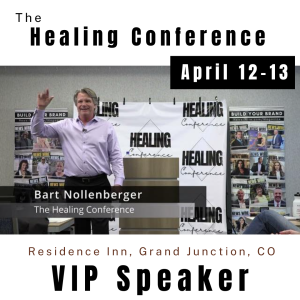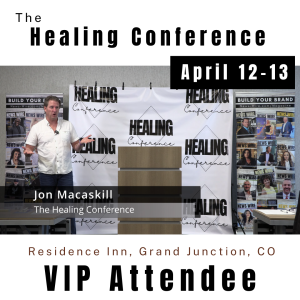Ladies and gentlemen, please put your hands together for Jeff Pearson. Thank you, sir. Alright, I’m so glad this podium is here because I like to have things in front of me. Memory is the second thing to go, right?
So, I would like to talk about what I have learned from my seven brain surgeries. Let’s talk for a second. Why have I had seven brain surgeries, you might ask? It has to do with that crazy word that he said, Hydro Warrior. There’s this condition that I was born with called hydrocephalus. Has anybody heard of it? Really? Okay, well, not you, sir; I know you have. Okay, so that is a condition that you are destined for brain surgery. It’s just how it’s going to work.
I want to go back a bit and tell a story. My parents, when I was two weeks old, had the first brain surgery I had. I was at their two-week checkup for the new little baby boy and said, “Alright, cool, we go in, we go out, we carry on with life.” And they found something wrong. They said we had to do a CAT scan. It’s probably nothing, it might be something. Turns out the brain was not… there was a blockage in my brain that wasn’t allowing the fluid that the brain produces all the time to drain. The common thing to do then, which is surprisingly still the common thing to do now, is to put something called a shunt, which is a little device that acts as an artificial brain. So that’s what they did, and I had no idea that that was going to change my life forever.
The first three-plus decades of my life were great. I didn’t hardly have any… maybe I had three or four revisions, different things. As the shunt fails, you get another surgery; you have another one, and you carry on with life. Cool, no problem. I know that sounds weird; it’s brain surgery, right? This is serious, but for those of us who have had a few, it’s not a big deal.
Fast forward to… well, no, I’m not going to do that. Growing up, I wanted to bring my parents into this because I don’t know if anybody… I know there are a lot of parents in the crowd, and we… our little boy had to have emergency surgery when he was a month old, so I understand what it feels like to not know what’s going to happen. And growing up, my parents had to deal with not knowing when the next brain surgery was going to be, right? Because these devices that they use to repair have the highest failure rate of any medical device in history.
So, I’ve escaped… I escaped those first 36 years with only three brain surgeries. It was great. I had a wonderful childhood and wonderful growing up, met my amazing wife, got married, and had three amazing children. Everything was great, everything was fantastic. I was like, this is awesome. And then 2013 came around.
I started having… like somebody was saying, paying attention to what your body’s doing, right? I had… I was at work, and I ended up having some pain. I didn’t really think anything of it until it landed me in the ER, and I ended up having emergency abdominal surgery. And then, six months later, I had to have two emergency brain surgeries, and then a few years later, I had another brain surgery, and a few months later, I had four in the last nine years.
And I say that because… hold that thought, memory is the second thing to go, remember. So, I’m sorry, I came up here so… so ready. It’s alright, it’s alright, I’m good, it’s alright. I’m telling you, just say seven brain surgeries; that’s all you got to know. You know, this is where the memory lives back here, that’s where the surgery’s… you know.
So anyway, okay, here’s what I’m getting at. You have a really good life going, and then things start to hit the fan, and you wonder, you go, “What the heck is this for? What is going on? Why is this happening?” Which really is kind of a useless question, right? Because why doesn’t matter; it’s what you’re going to do with it.
So, I was in the hospital for about three weeks in 2014 because there was a bacterial infection in the fluid, and they had to do two brain surgeries. And I was in there, and I was starting to get a little upset, and my dad had to kind of pull me aside and say, “Look, man, you got to change your attitude because these doctors are here to help you, and these nurses are here to help you, and all the people in the hospital are here to help you.” So, that was kind of a turning point.
And then, down the road a little bit, in 2018, my third brain surgery in so many years, my wife and I were sitting in a doctor’s office, waiting for the surgeon to come in to tell me, you know, the surgery went great, the surgery didn’t go great, we’re going to have to maybe do it again, maybe not. He came in and had a great appointment, but during the time that we were waiting for him, I could hear the family in the next room… start to… you can kind of hear the rumblings of a conversation happening because those walls are nice and thin. And I could tell that they were distraught. I kind of thought, “Man, I wonder if they’re finding out that their little one is going to have to have brain surgery.” I’m thinking, “Oh, geez, you know.” And I thought back to what my parents might have thought when I was two weeks old and thought, “Oh my God.” I thought, “Okay, we got to do something. We got to do something about this.”
So I looked at Catherine and said, “We’re going to… we got to figure something out.” Honestly, all I wanted to do was run next door, give them a hug, tell them everything was going to be okay, answer their questions, and just hug them. But HIPAA doesn’t like that. They don’t like it when you do that. You can’t just run into a hospital room; they don’t like that. So I didn’t. But that was the birthplace of our nonprofit organization called Hydro with Hope.
By the way, if you don’t have hope, you’re dead in the water already, right? Especially depending on where your hope comes from. So, we started an organization called Hydro with Hope, and it is designed to help people with hydrocephalus because brain surgery is inevitable.
So, we came up with that idea, and we came up with the idea that we wanted to do something tangible. We didn’t want to just be another fundraising organization. There’s enough of those; there’s a lot of those, they’re doing a great job. We wanted to be the boots on the ground, helping families so that I didn’t have to go to the next room; I could do it anywhere in the world. Because we started it online, started with social media, started with all of that.
We published a journal, a fill-in-the-blank journal, to walk people through that whole process, that terrifying process of, “Holy crap, my kid’s going to have to have what kind of surgery?” Right? And the whole thing.
And then, you know, I know you can’t tell by today, but I have spoken a few places about this. I don’t know why I’m so nervous today; this is so weird. But honestly, after we started the nonprofit, we were approached about something that just blew my mind. I never would have guessed that this would have been where I was. They approached me about a TV show.
We have gotten to the point now that we can get the word out so much. We have a journal that we can help people. We have a TV show called Invisible Condition. By the way, who… does anybody… I mean, when I say “invisible condition,” what comes to mind? Like, there’s all kinds of stuff, right? Like Down syndrome is not invisible, right? But hydrocephalus is. You would never look at me and say, “I know what he has.” Or spina bifida, or MS, or brain tumors, anxiety, depression, bipolar, schizophrenia, ADHD, PTSD, and military sexual trauma.
I mean, with our TV show, which I honestly call a ministry because telling your story is therapeutic, right? We have so many people who have come on and been able to tell their stories and get the word out about what they’re doing and what they’re passionate about, as well as organizations that help that population of invisible condition warriors. Honestly, that’s why we call it Hydro Warrior because brain surgery is not for the faint of heart.
And so, Invisible Condition is how we’ve chosen to get this word out. To that end, with Hydro with Hope being a nonprofit, I have actually partnered with a couple of other people who are not here but are experts in what they do. And we are, in about three or four months… it’s going to be in the spring; we don’t have a date yet. It’s probably going to be in March, April, May, somewhere in there. We’re going to be planning a benefit concert for Hydro with Hope and for a couple of other nonprofits.
And it’s going to be in Colorado Springs, so if anybody’s in the area, watch for word about that.
If anybody knows that there is something in their life that has hydrosis, which, by the way, is really common. I don’t know if you guys know this, but it’s just as common as Down syndrome and more common than spina bifida. You guys have heard of those, right? Right, everybody’s heard of those.
Had anybody, besides those who know me, ever heard of hydrosis before? Right, that’s… I mean, yeah, it’s not that I’m surprised. Actually, I’m honestly surprised that so many hands went up because, usually, nobody’s heard of that. It’s like, “Hydra, what?”
So, we want to get the word out with this benefit concert. That’s what we’re going to be able to do, and with the TV show, that’s what we’re going to be able to do, and this journal. I’m just excited to get the word out. I’m very thankful to have been able to be here and to get the word out to you.
And I think that’s it. I think I’m good. I just… But yeah, if anybody has questions about any of that, please talk to me later because I would love to talk to anybody who might know somebody who wants to tell their story. You know, everybody wants… everybody has a story. I’m up for it. Let’s do it. Thank you very much, ladies and gentlemen.





